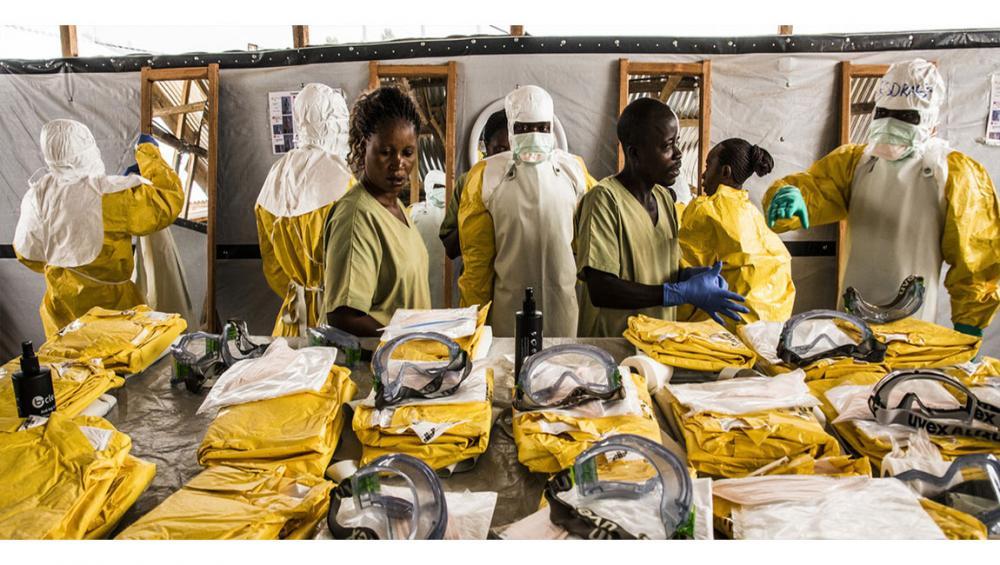Just Earth News | @justearthnews | 29 May 2019, 07:53 am Print

World Bank/Vincent Tremeau
New York, May 29 (JEN): Although the Ebola response in the Democratic Republic of the Congo (DRC) continues to make headway thanks to the determination of health workers on the ground, insecurity is still hampering the response, the World Health Organization (WHO) said on Tuesday. This has led the UN to establish a new coordination structure in the hopes that access to at-risk areas can be improved.
“We are seeing a dramatic increase over the past few months in the number of security incidents in the area of North Kivu, which lies at the epicentre of this ebola outbreak,” said Dr. Matshidiso Moeti, WHO Regional Director for Africa, to journalists in Geneva as she recalled the brutal killing of a WHO colleague in mid-April.
She added that on Saturday, another attack took place during which another health worker was killed.
Insecurity equals lack of access
So far, in 2019, there have been 174 attacks against health care facilities or workers. That’s a three-fold increase compared to the number of attacks that took place during the previous five-month period (August through December 2018).
“Insecurity really is what is making the response to this Ebola outbreak so challenging and also so unpredictable,” she insisted, adding. “And this insecurity leads to a lack of access and that is really what is driving the increase in cases. When the response can’t reach people, they don’t get the chance to be vaccinated or to receive life-saving treatments if they do fall ill.”
Currently, the DRC’s worst ever outbreak of the deadly virus has seen 1,920 Ebola cases overall, including 1,281 deaths. Despite the risks, the more than 700 workers deployed by WHO remain in the area working alongside other health teams providing care.
“This Ebola response is one of the most complex health emergencies the world has faced,” said Dr. Moeti, explaining that “the authority of the Government is not strong, and what further complicates the situation is that there are many belligerents and armed groups and parties, and it’s not always clear under whose leadership they are operating”.
A new UN coordinating structure
To strengthen the coordination of the response and “create a much more enabling environment”, this week, the Deputy head of the DRC peacekeeping mission MONUSCO, David Gressly – newly appointed UN Emergency Ebola Response Coordinator – will be arriving in the city of Butembo, at the epicentre of the outbreak. Among several other key objectives, his role will be to help strengthen the DRC Government’s engagement around security, in a bid to reconcile various warring parties in the area.
In parallel, a scale-up of operations in the region from health and humanitarian organizations is also expected.
“I’m hopeful that this new structure will bring the much-needed stability, safety and clarity, and enable the response to proceed,” said Dr. Moeti.
- WHO prequalifies new oral simplified vaccine to combat cholera, here is all information you need to know
- Pandemic experts sound alarm over the spread of avian influenza to humans
- Nigeria is now the first country to introduce 'revolutionary' meningitis vaccine: WHO
- Pregnancy accelerates biological ageing in healthy, young adult population, finds shows
- Hepatitis virus killing 3500 daily, warns WHO report






